
- Home
- About Us
- Sustainability
- Investors
- News
- People & Culture
-
Regions
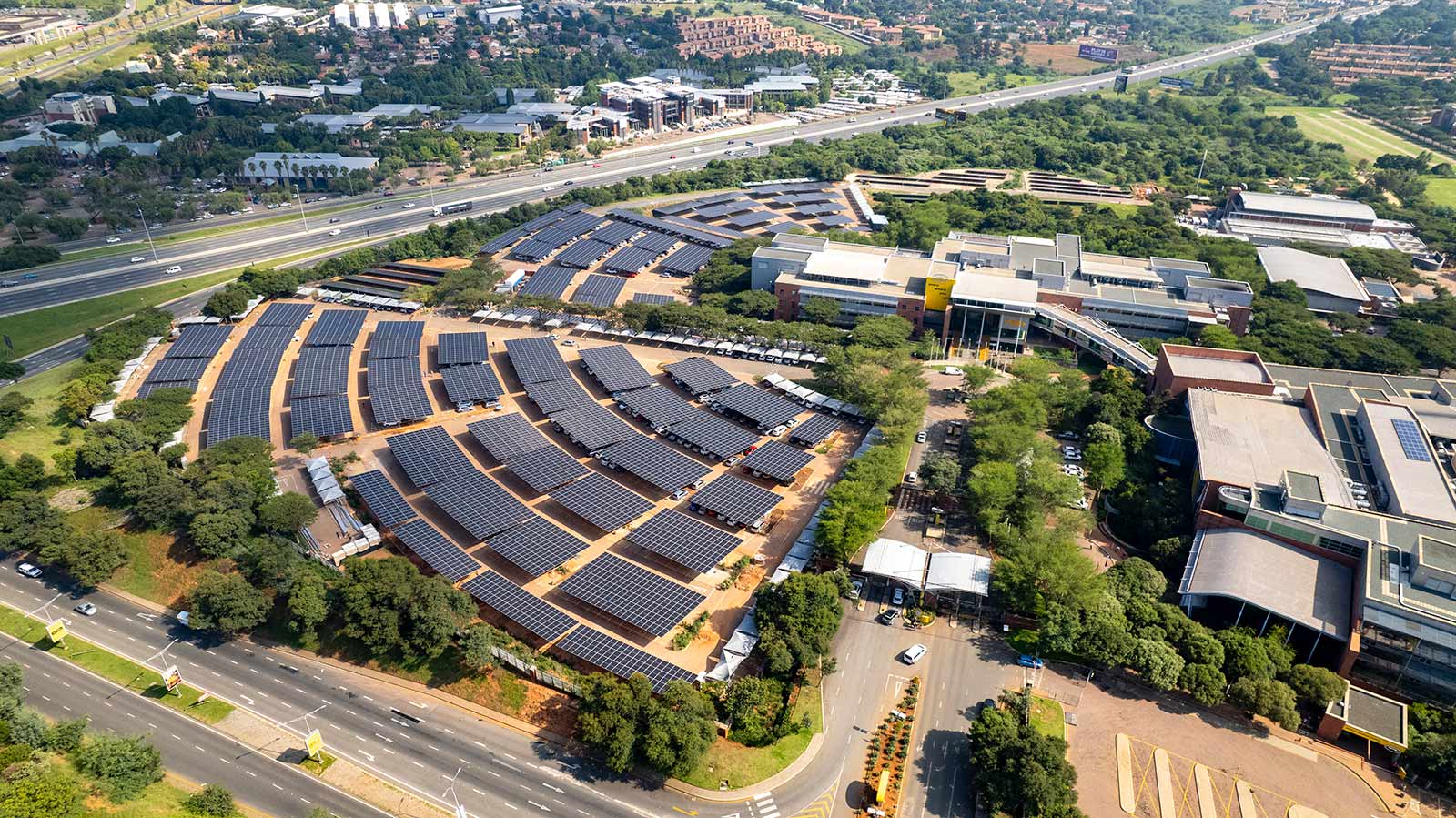
Project Zero forms a key part of MTN South Africa’s strategy to meet its Science Based Targets initiative (SBTi) commitments and progress toward the Group’s Net Zero philosophy. In 2024, the programme focused on reducing reliance on high-carbon energy through solar integration, enhanced energy efficiency in base station site generators and wheeling arrangements with independent power producer (IPP)s.
A notable initiative within this framework was the commissioning of the 14th Avenue Solar Park, a 5MW solar photovoltaic (PV) system with 6MWh battery storage, representing a practical application of the Substitute pillar within MTN’s Net Zero model.
South Africa faces high fossil fuel energy dependency, rising electricity costs and loadshedding due to major grid instability. The reliance on traditional power sources, such as coal and diesel generators, directly impact MTN South Africa’s ability to reduce emissions and manage energy costs.
To address these challenges, MTN South Africa accelerated its transition to cleaner, more stable energy alternatives, ensuring a more sustainable, cost-effective and resilient energy framework. The results reflect this shift. In 2024, MTN South Africa achieved a 64.2% reduction in Scope 1 and 2 emissions against a target of 12.5%. The actual emissions reduction achieved was 353 329tCO2e. This case study illustrates the successful application of the Substitute pillar of MTN’s Net Zer philosophy.
The system cut 5 937tCO2e in 2024, with full-year savings expected to reach 8 037tCO2e.
Achieved an opex reduction of R12.61 million in 2024. Going forward, it will be R12.6 million per annum and escalate as per NERSA’s cost of energy.
Shielded MTN from rising grid electricity prices, which have increased by an average 13.5% year-on-year (2020 – 2024).
Project Zero in South Africa demonstrates how large-scale solar integration, hybrid power solutions and innovative energy models can contribute meaningfully to emission reduction, cost control, and energy resilience. Looking ahead, MTN South Africa will continue to scale renewable energy adoption, optimise wheeling strategies and explore further electrification opportunities to support its long-term sustainability targets.
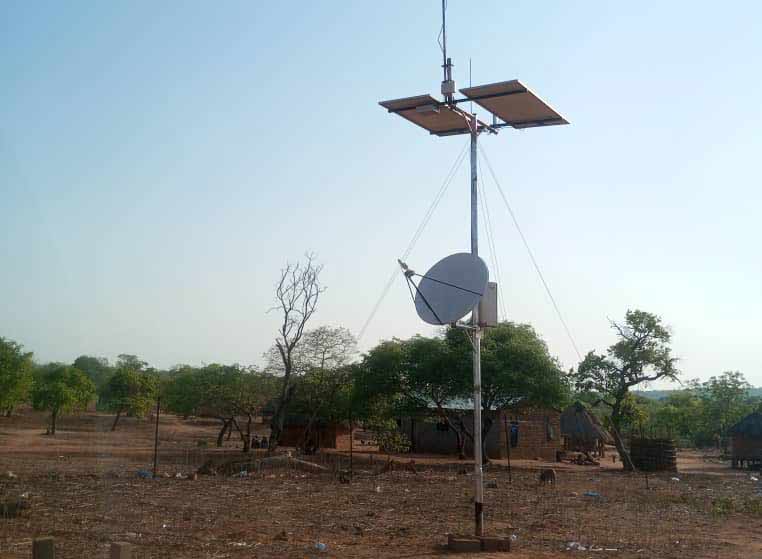
Sub-Saharan Africa is home to the world’s fastest growing population, yet it remains the region with the highest number of people without mobile coverage. More than 210 million individuals across rural areas in sub-Saharan Africa are still beyond the reach of telecom infrastructure or reliable power, limiting their ability to connect, transact, and participate in the digital economy.
This is the reality we are working to change.
At MTN, we believe everyone deserves equitable access to the benefits of a modern connected life. For rural communities, connectivity is a lifeline that can create opportunities, impacting livelihoods. It enables small businesses to reach new markets, allows farmers to check weather patterns or prices, and gives healthcare workers the means to call for urgent assistance. Yet, extending infrastructure into remote areas remains resource-intensive and technically complex.
To help address these challenges, MTN Zambia has partnered with Africa Mobile Network (AMN) to expand coverage to rural and underserved communities across the country. AMN’s Network-as-a-Service (NaaS) model uses solar-powered infrastructure optimised for rural environments, allowing MTN to deliver 2G, 3G, and 4G services in areas previously off-grid, without requiring upfront capital or long-term operational risk.
Connectivity is only meaningful when people can use it. In partnership with AMN, MTN Zambia also supplies heavily subsidised mobile devices to residents in newly connected villages. The initiative includes support for the establishment of airtime vendors and mobile money agents, enabling broader access to financial services like deposits, withdrawals, and account management.
The effects are practical and visible. Gertrude Banda from Mawanda Village in Zambia reflects, “A long time ago we used to write letters to Lusaka. Now MTN thought of us and gave us phones so that we can communicate with people in Lusaka. When money comes, we are able to collect from MTN Mobile Money. Things are much easier because of the phones MTN has provided. So we are very grateful to MTN for bringing us phones here in our village.”
Stanley Kaluba, a Clinical Officer in Mawanda, echoes Gertrude’s sentiments: “We use the MTN network to make referrals for patients that need to go to the hospital and to call an ambulance in emergencies. MTN is a very good network, and since the time they installed this tower, it has really helped us.”
Connectivity is not only focused on enabling access to networks and affordable phones; it’s about leveraging economic empowerment. David Phiri, a mobile money agent, shares, “People come to my shop to withdraw money or open mobile money accounts. They can buy airtime through MTN MoMo or receive money from Lusaka. There are so many things I can do for a living now. I am very thankful.”
These experiences reflect the broader value of rural connectivity; giving individuals and households access to services that support daily life, from sending and receiving money to managing small enterprises, subscribing to insurance, or paying school fees.
MTN’s efforts to close the coverage gap are part of a broader, ongoing commitment to driving digital inclusion in the communities where we operate. While challenges remain, each newly connected village signals progress toward a more inclusive digital future.
The progress we’ve made reflects the strength of our partnership; with governments, technology partners , entrepreneurs, and local communities, each playing a role in shaping a more inclusive digital future.
As we continue to extend our reach, we do so with the understanding that lasting impact comes through shared effort. Together, we are creating the conditions for more people to access opportunity, stay connected, and take part in a more digitally inclusive society.
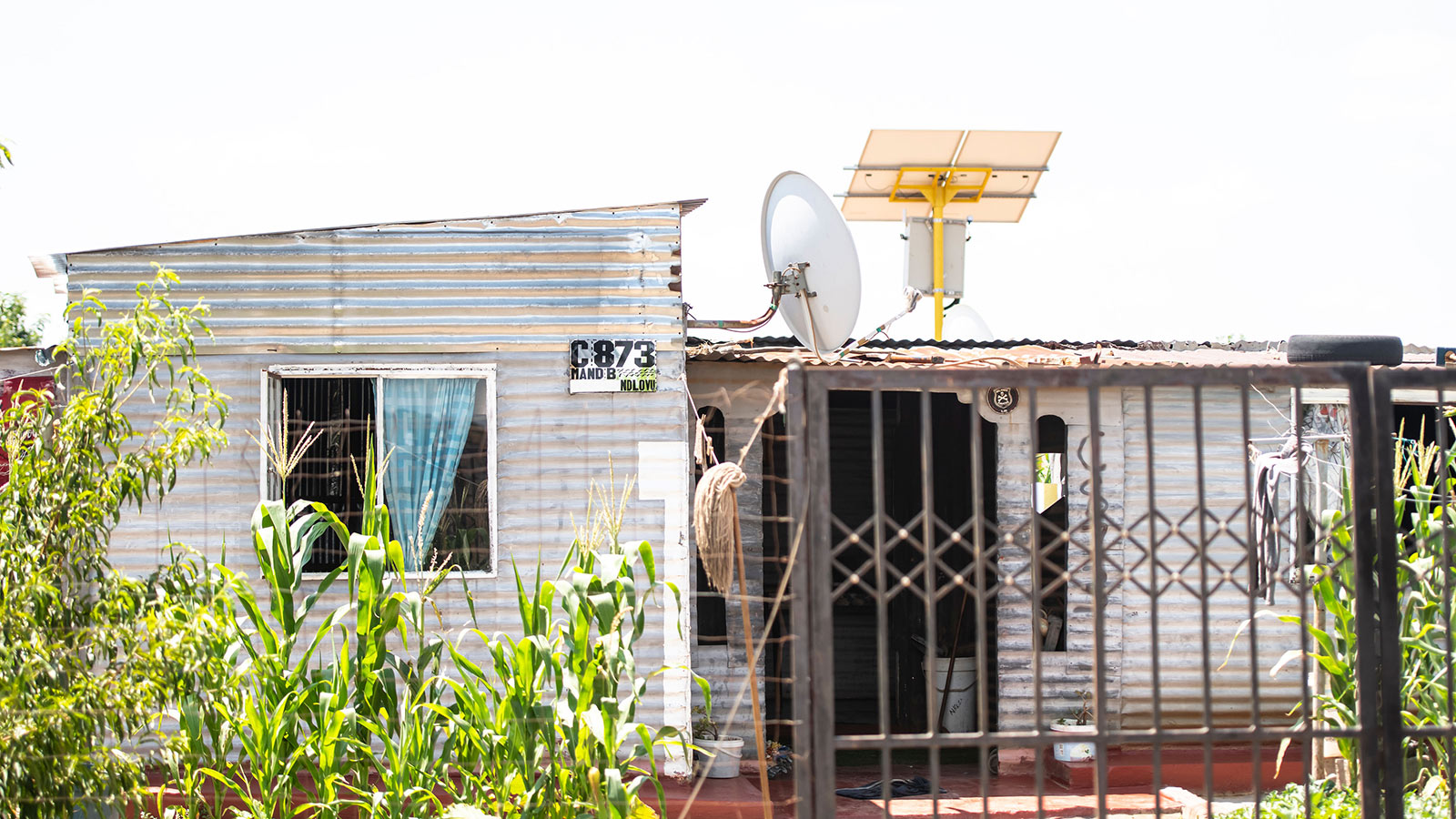
Our planet’s future depends on our collective ability to tackle the urgent threat of climate change. At MTN, we understand that climate change is an environmental concern and a critical business risk with significant financial implications. Embedding climate risk assessments into our operations is a critical part of our sustainability journey.
Ahista Hussain, MTN Group Senior Manager: Environmental Management and Governance, shares some insights into MTN’s approach and the lessons we’ve learned along the way.
We know that a compelling business case is essential for driving action. Our approach focuses on demonstrating the real financial impacts of climate change. We do this by integrating climate risks into our existing business processes, highlighting the potential socio-economic consequences, and quantifying the financial impact of extreme weather events, like the recent floods and veld fires that have affected our infrastructure, on our operations and customers. The World Economic Forum (WEF) has identified extreme weather as both a short-term and long-term risk, and we have seen these risks play out firsthand. This can lead to business interruption and financial losses, making adaptation planning vital. This data-driven approach, along with aligning with global best practices, industry guidelines and frameworks like those in our sustainability reports, ensures our climate adaptation initiatives are robust, transparent and effective. Climate risk mitigation is essential for business continuity and keeping our customers connected.
Climate change and the ways we assess its risks are constantly evolving. We embrace this dynamic landscape by building a culture of continuous learning and collaboration. We rely on teams across MTN, drawing on their diverse expertise to deliver the best possible results. Our pilot Climate Change Risk Assessment (CCRA) was a valuable learning experience, allowing us to build our internal skills and knowledge through strategic partnerships with external experts. We took a phased approach, starting with a select scope of 27 assets across six markets, and, following the outcome of phase 1, focused on a material asset and associated hazards. This iterative process allows us to learn, adapt and improve our approach as the field develops.
Assessing climate risk at a regional level comes with its own set of challenges. These include choosing the right models and dealing with complexity and uncertainty. The fact that local conditions can be very different means we need tailored approaches, which adds another layer of complexity. We also know how important it is to get buy-in from risk assessment participants and to show the shared value that comes from these assessments. Our pilot CCRA showed us just how important these tailored approaches are, given the range of climate risks across different regions. The insights the MTN SA team provided in phase two were crucial for data gathering and implementation. Other challenges, such as data availability and quality, different regulatory environments and the need for adaptation measures that are specific to each area, all make regional assessments more complex.
We take a practical, step-by-step approach. We make sure our data sources and methods are documented to ensure transparency and replicability. We work with external experts to ensure our assessments are high-quality and reliable. Our South African Data Centre Adaptation Plan, which identified the material hazards of extreme heat and water stress, and the approach serves as a model that can be scaled and adapted to other data centres and regions. This targeted approach allows us to demonstrate tangible results and build momentum for broader climate action.
Our journey has yielded valuable lessons. We have learned the critical importance of context-specific approaches and the need to address gaps in existing methodologies. We understand the process, resource and execution requirements for effective climate risk assessment. To scale our efforts, we have developed a guide that Opcos can utilise and adapt to their local contexts, fostering an ongoing dialogue with stakeholders to refine our approaches over time. This incorporates best practices and lessons learned to empower local teams to conduct their assessments and develop tailored adaptation plans. Climate risk assessments are a building block to a sustainable future together.
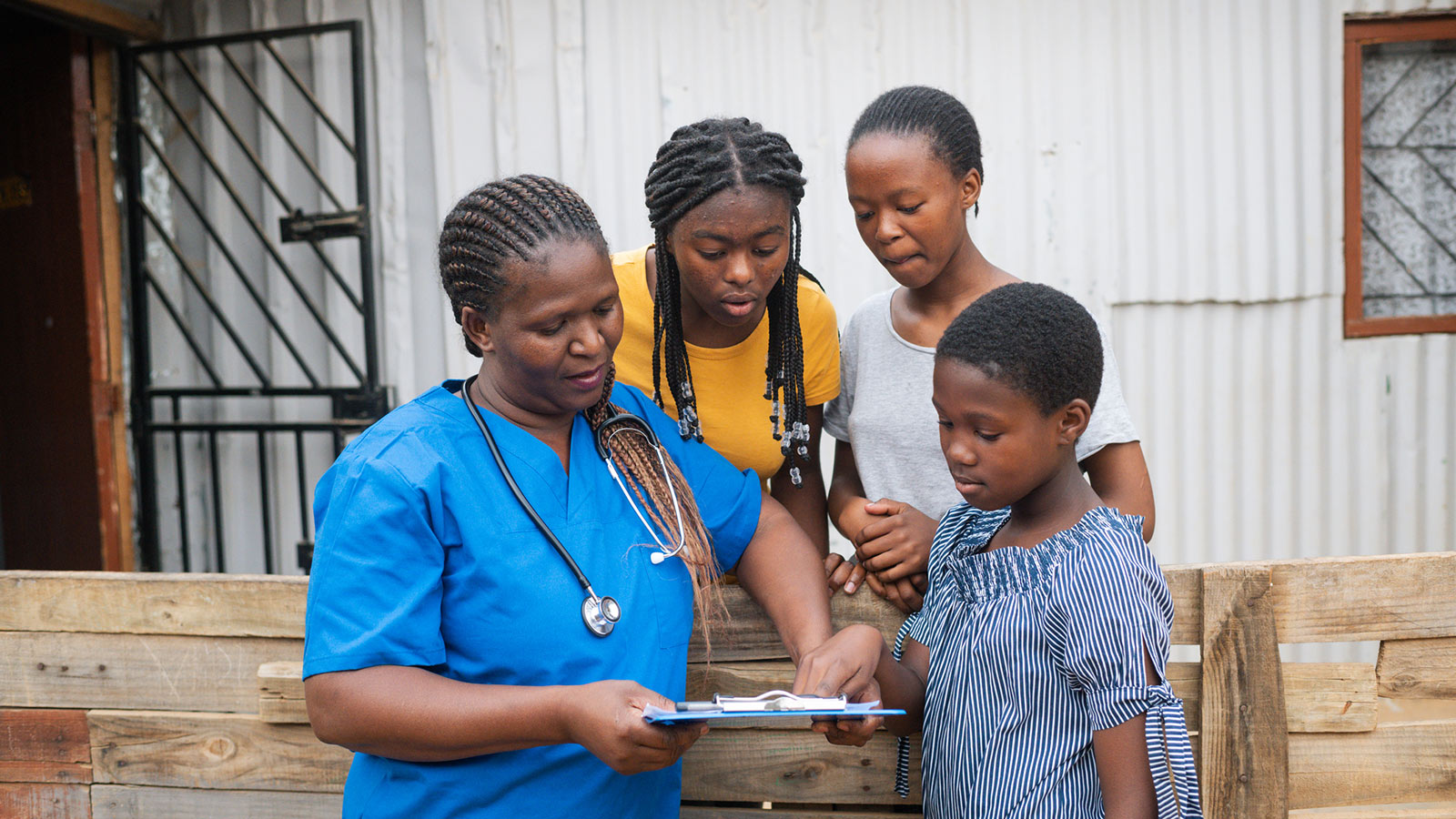
As South Africa accelerates toward its National Development Plan 2030 (NDP 2030) goals, digital transformation has emerged as a critical enabler of economic growth, education and improved public service delivery. Reliable connectivity is now essential for enabling efficiency, innovation and socio-economic progress.
Achieving nationwide digital inclusion, however, requires strong and strategic partnerships with public and the private sector. MTN South Africa, in alignment with national objectives, is working alongside government to modernise public sector operations, enhance network infrastructure and expand connectivity to underserved communities.
Through strategic collaborations such as the RT15 and RT29 transversal contracts, we are helping deliver practical, future-fit ICT solutions that support public sector transformation and bridge the digital divide, unlocking new opportunities for citizens, businesses and government institutions.
A digitally enabled public sector offers the potential for more efficient governance, better service delivery and increased citizen engagement. Government institutions increasingly rely on secure, high-speed connectivity to drive initiatives such as smart city infrastructure, e-government services, and streamlined public sector operations.
Through the RT15 transversal contract, MTN is delivering mobility and connectivity solutions tailored to enhance productivity and security for public sector employees. These solutions enable seamless remote working, better interdepartmental collaboration, and faster access to critical government systems, ultimately improving service delivery to South Africans.
Participation in the RT29 transversal contract further enables MTN to support municipal digitisation, including the implementation of smart electricity and water technologies across South Africa’s 257 municipalities. This work helps lay the foundation for a more resilient, responsive, and future-ready public sector, equipped to meet the demands of a digital future.
Beyond government departments, broadband access is fundamental to inclusive economic growth. Many South African communities, particularly in rural and underserved areas, are challenged with limited connectivity, which hinders access to education, healthcare and economic opportunities.
MTN has committed to expanding its network footprint in these areas, investing in rural connectivity projects that introduce high-speed internet to those who need it most. By deploying 4G and 5G infrastructure, we are ensuring that more citizens, businesses and public institutions can access digital tools and services that drive economic growth. Our 4G cover represents 97% of the South African population, while 5G represents 44%.
While MTN has made significant strides in enhancing South Africa’s digital landscape, the journey to a fully connected and digitised nation requires collaboration at every level. The private sector cannot work in isolation from the government, policymakers, and industry players must align efforts to create an ecosystem that fosters innovation, investment and accessibility.
To accelerate this progress, we must focus on:
MTN remains committed to working alongside government, regulators, and industry partners to help build a more connected, inclusive future. Through shared investment, innovation, and purpose, we can support a South Africa where no community is left behind in the digital era.
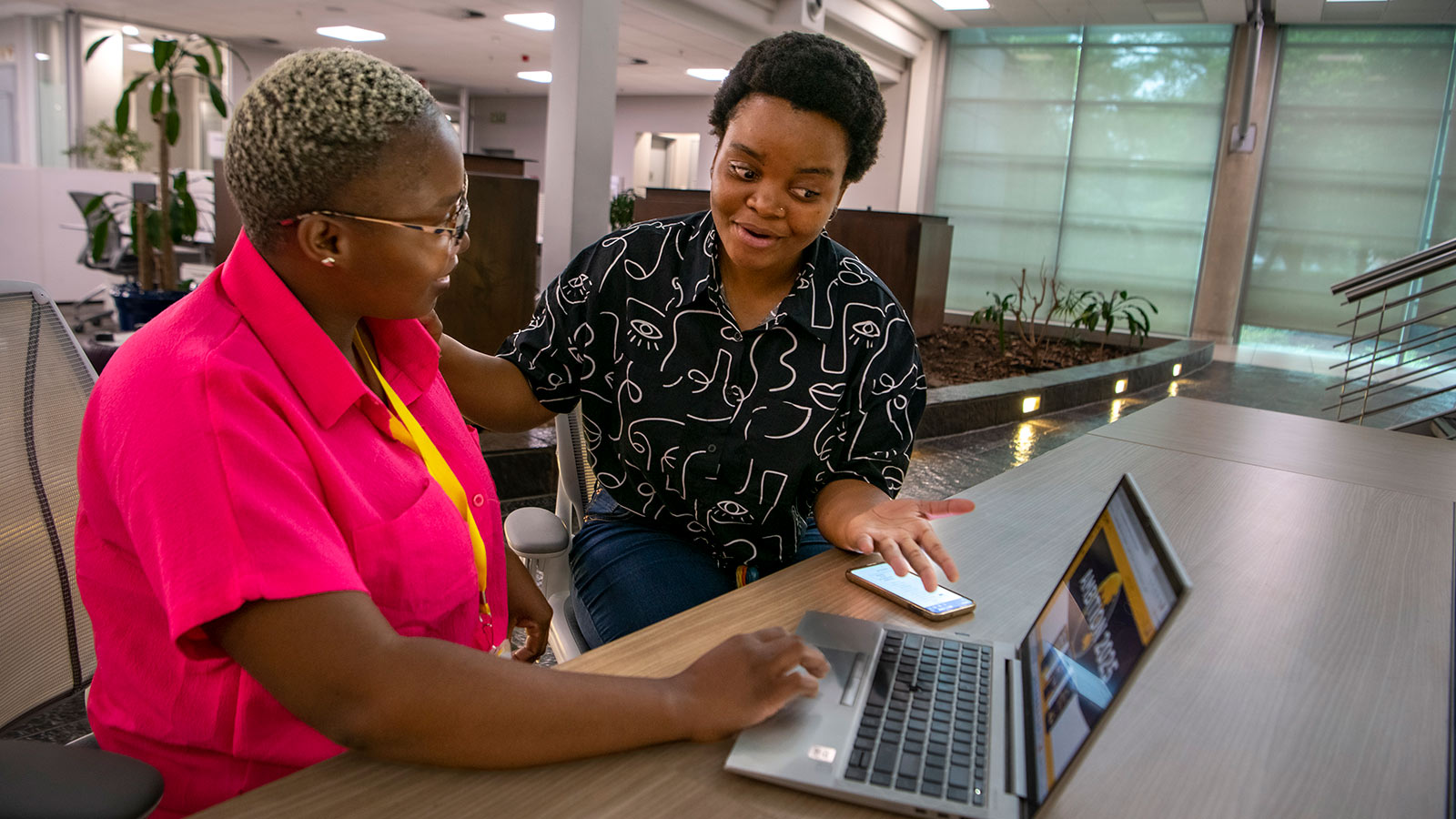
MTN Group has joined the Joint Audit Cooperation (JAC), a globally recognised industry body committed to promoting technologies and practices that foster environmental, social and governance sustainable practices. This strategic move reinforces MTN’s commitment to integrating sustainability into its business operations and supply chain partnerships, aligned with our broader vision of creating shared value.
“As the leading operator in many of our markets, we recognise that in partnering with JAC we have a significant opportunity to contribute to the collective agenda of driving greater adoption of environmental and social practices across our supply chain and the sector. This is how we realise the outcomes we aim for in placing ESG at the core,” says MTN Group Executive for Corporate Affairs and Sustainability Nompilo Morafo.
Telecommunications is a rapidly evolving industry, shaped by emerging technologies, shifting business models, and an expanding landscape of sustainability-related opportunities and risks. Joining JAC allows MTN to work alongside industry peers to address these challenges through collaboration and collective accountability.
“We recognise the unique blend of know-how that these two well-established bodies bring. In joining, we are able to verify the ESG related performances of our top 20 suppliers and their sub suppliers who have already been audited. The memberships also provide a platform to further enhance the audit coverage across our supplier base,” says MTN Group Executive for Procurement & Supply Chain Management Dirk Karl.
Founded in 2010, JAC brings together many of the world’s largest telecoms operators to share resources, audit insights and best practices advancing long-term corporate social responsibility in the different tiers of the ICT supply chain globally. Collaboration between the largest operators promotes sustainable sourcing globally.
“On behalf of JAC and its member companies, we are very pleased to welcome MTN on-board with us and look forward to working together. This provides us with further diversity from African and Middle Eastern continents in our collaboration on making progress on supply chain sustainability topics and issues,” says Paras Shah, JAC Chairman.
MTN’s supply chain comprises approximately 15,000 suppliers operating across a multi-tiered global network. As we continue to scale, our commitment is to work with partners who uphold the same high standards of ethical conduct, environmental stewardship, and social responsibility.
Membership in JAC strengthens MTN’s ability to ensure ESG compliance and transparency throughout the supply chain – through independent audit processes and by building alignment around shared goals with like-minded operators.
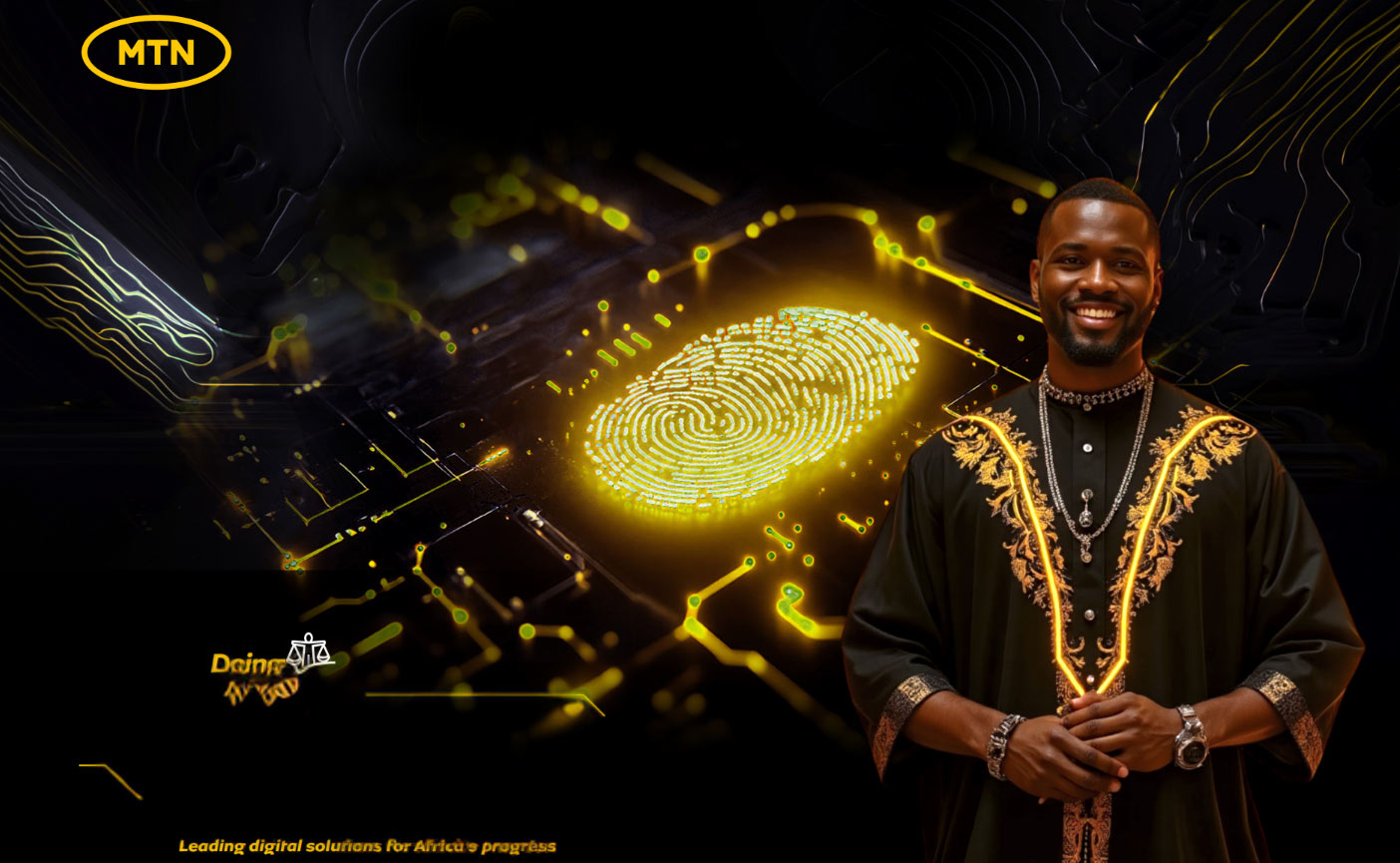
In today’s digital economy, cybersecurity is a critical enabler of trust, safety, and resilience. As digital services expand, so too do the risks: financial fraud, data breaches, and identity theft increasingly threaten individuals, businesses, and national infrastructure. In Ghana, where digital adoption is growing rapidly, the need for increased cybersecurity awareness and education is clear. Human behaviour remains one of the most exploited vulnerabilities in cyberattacks, making user education as vital as any technical defence.
Against this backdrop, MTN Ghana observed Cybersecurity Awareness Month 2024 under the theme “Living with Security”. The initiative underscores MTN’s commitment to fostering a secure digital environment for all stakeholders and responds to the rise in cybersecurity threats facing Ghana.
Announcing the campaign, MTN Ghana’s CEO, Stephen Blewett, emphasised the critical importance of collective vigilance in securing the digital ecosystem, stating, “In today’s interconnected world, cybersecurity is a shared responsibility.”
As a key player in Ghana’s digital economy, MTN continues to prioritise cybersecurity as a core business imperative by investing in secure infrastructure and equipping stakeholders with the knowledge needed to safely navigate the digital landscape.
Throughout October, MTN Ghana led a series of awareness-building activities, including media training sessions, student outreach programmes and collaborative forums hosted in partnership with the Ghana Chamber of Telecommunications. These engagements focused on emerging threats, evolving user behaviours and best practices in cybersecurity.
Chief Information Officer for MTN Ghana, Bernard Acquah, highlighted the importance of cybersecurity, saying, “Cybersecurity is a fundamental aspect of living in the digital age. At MTN, we are dedicated to empowering our community with knowledge and tools for online safety. Our theme, ‘Living with Security,’ reflects this commitment.” He also encouraged greater participation in Cybersecurity Awareness efforts and stressed the need for proactive digital security practices to keep pace with evolving online risks.
Cybersecurity is a long-term commitment. By promoting awareness, MTN Ghana contributes to building a more informed and vigilant digital society. When individuals understand risks and adopt safer online behaviours, the entire ecosystem becomes more resilient.
Through sustained awareness initiatives, partnerships, and practical education, MTN Ghana continues to support national efforts to safeguard the digital economy and protect users across the country.

In the heart of Eswatini, the MTN Skills Academy Academy is creating new pathways for youth empowerment, equipping thousands of young people with the digital skills needed to succeed in a fast-changing world. This transformative initiative is bridging the digital divide and helping to build a future-ready workforce.
Through the Skills Academy, over 2,500 free learning licenses licences have been made available to students across the country. The programme offers a broad spectrum of online courses covering in-demand subjects such as software development, data analysis, social media management and financial literacy, all designed to prepare learners for the challenges of the modern job market.
The success of the Skills Academy is rooted in strong, strategic partnerships. MTN Eswatini worked closely with key stakeholders, including the Eswatini Communications Commission (ESCCOM), Junior Achievement (JA), ENACTUS, and the Youth Enterprise Revolving Fund (YERF) to expand reach and impact. These partnerships provide learners digital tools, mentorship, career guidance, and opportunities for further growth.
The MTN Foundation has played a key role in enabling this initiative through sustained financial support, ensuring continuous expansion and improvement of the programme.
The true impact of the MTN Skills Academy is best illustrated through the powerful stories of its beneficiaries. For instance, Sipho Dlamini, a young man from Mbabane who transformed his life through the Skills Academy. By learning data analysis and software development, Sipho gained the skills that helped him secure a position as a data analyst at a leading tech company. Reflecting on his journey, Sipho shares, “The Skills Academy changed my life. It opened doors I never thought possible.”
Similarly, Tandzile Dlamini, another passionate participant, completed 18 foundation courses. She emphasises the practicality and relevance of the training, noting, “the courses were not only accessible but directly applicable to the job market. I now feel more confident and prepared for my career.”
More than an educational programme, the MTN Skills Academy is a strategic enabler of inclusive economic growth and digital transformation. Its goals align closely with the Government of Eswatini’s vision for sustainable development, improved service delivery, and national advancement through technology and education.
As the digital economy continues to evolve, initiatives like the Skills Academy are essential in cultivating a digitally literate, future-ready generation.
MTN Eswatini remains deeply committed to deepening its impact, working with partners to scale the initiative and extend its reach. The Skills Academy stands as a testament to what is possible when technology, partnership, and purpose come together in service of youth development.
In Eswatini, the MTN Skills Academy has become a lifeline equipping young people with the skills, confidence and opportunity to realise their potential.
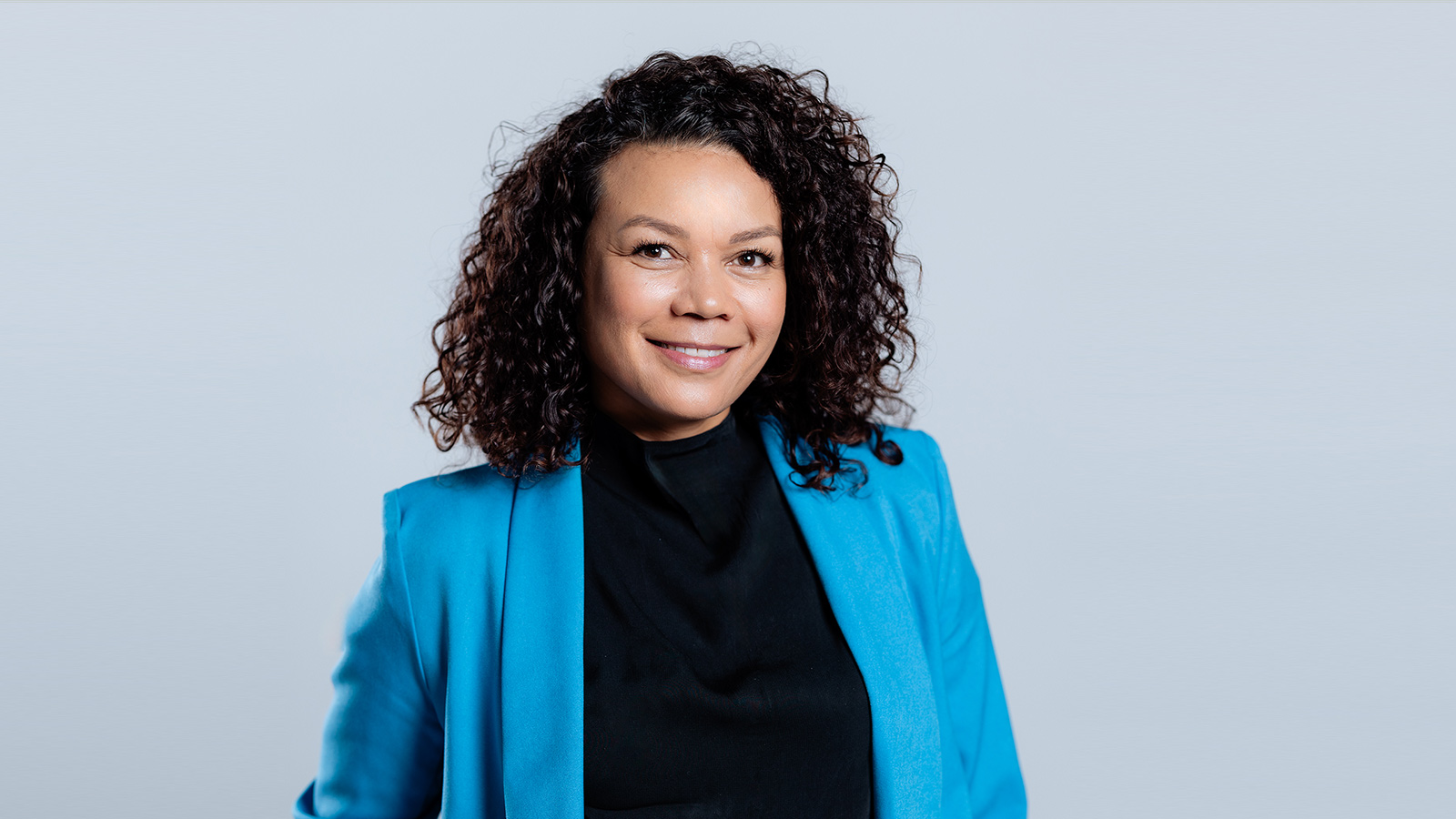
Alexis once believed she was the kind of person to whom abuse could never happen. She was well educated, thriving in her career, confident in her decisions, and “in the know.” But what unfolded left her bewildered and emotionally paralysed. She began questioning her thoughts, her feelings, and even her own words. Living in a constant state of anxiety, confusion, and self-doubt, she didn’t understand what was happening, only that she could not move forward.
Only later would Alexis realise that she was being gaslit – a form of psychological abuse that erodes a person’s sense of reality. She found herself trapped in a cycle: he promised change, she returned, and the abuse resumed, just as before. It was only much later that she would come to understand this cycle as trauma bonding.
Her turning point came after experiencing a miscarriage. Her Line Manager noticed her distress and stepped in, a moment of care that led to her being admitted to a wellness facility for 6 weeks. There Alexis found professional support and connection. She states: “For 6 weeks I had access to psychiatrists, psychologists, physiotherapy and was connected with other women who experienced what I had.” Empowered with this new language and an understanding of the cycles of abuse, she gained a deeper view on what had happened to her. She began to understand the red flags she hadn’t seen before. Most importantly, she started to heal.
But Alexis was also aware of the privilege embedded in her journey. She had access to wellness benefits through medical aid, a supportive employer, and the right interventions at the right time. What about those who have none of those things, no job, no insurance, no one to notice their pain?
That question became the next phase of Alexis’s healing. Inspired by the strength of the women who shared their stories with her, Alexis began to ask “what if we could create and simulate this same kind of healing for others impacted by GBV?”
Her answer was to meet people where they are, literally. Together with a team of collaborators, she designed a radio-based programme as a scalable, low-barrier platform for GBV awareness and healing. Radio, still one of the most accessible media channels across the continent, became the bridge.
As a South African, Alexis is piloting this initiative through a beta launch on Heart FM in the Western Cape and Gagasi FM in Kwa-Zulu Natal. The programme has already reached more than 2 million people, sparking real conversations about GBV, accountability, and healing. At its heart is a call to reflection and to action.
“What can I do?” you may be asking.
Take the necessary action to help yourself; then build the courage to stand up for someone else.
At MTN, we believe in creating safe spaces, supporting recovery, and using our platforms to amplify voices like Alexis’s; voices that challenge silence and inspire action. Because there is #NoExcuse for Gender-Based Violence
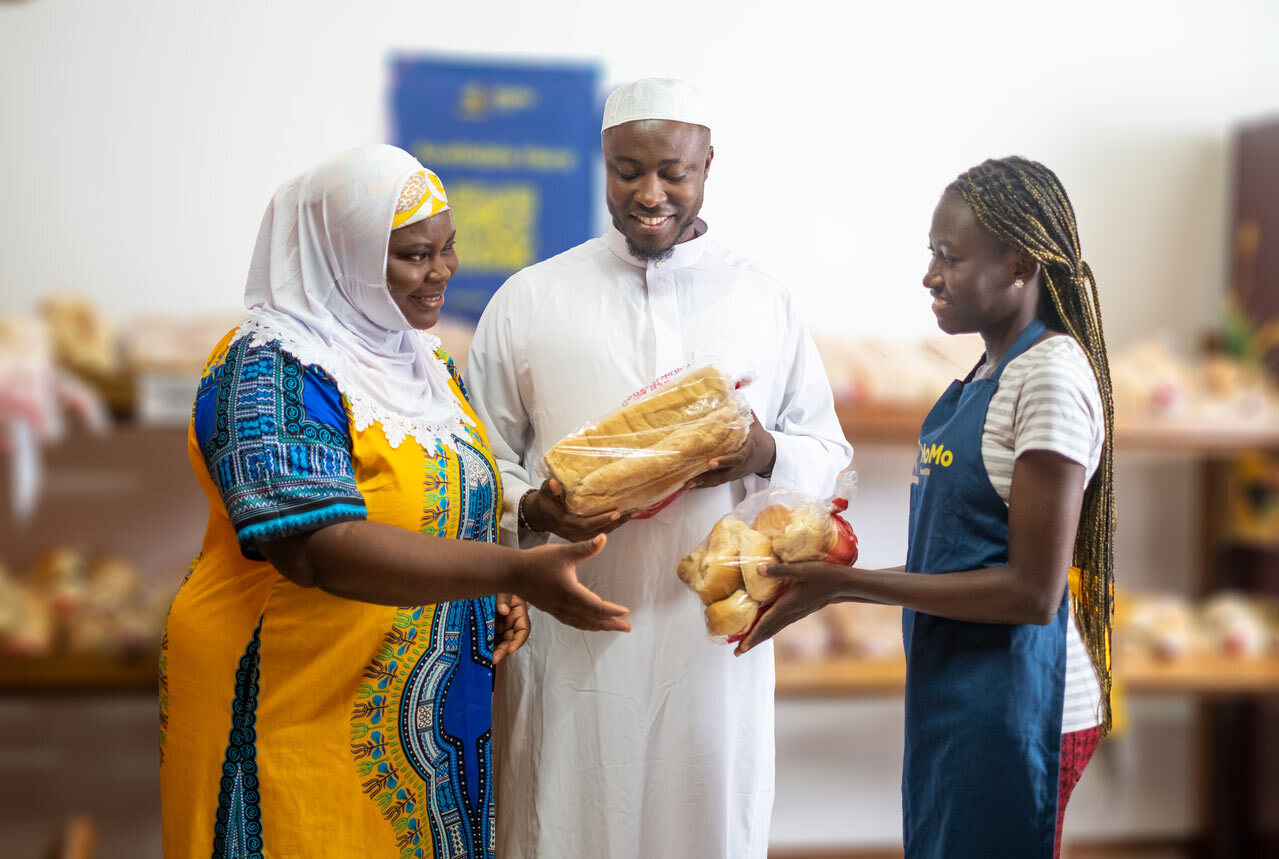
Financial exclusion remains a significant barrier to inclusive to economic growth and social development in Côte d’Ivoire. Limited access to formal financial services disproportionately affects women, rural communities, and low-income populations, contributing to inequality and reducing opportunities for economic participation.
Factors such as low financial literacy, high service costs, and insufficient infrastructure further limit access to essential services like savings, credit, insurance, and secure payments
MTN recognises its crucial role in the nation’s digital transformation, as a leading telecommunications provider in Côte d’Ivoire, leveraging our infrastructure to assist in bridging the divide of financial exclusion. MoMo is our fintech platform, allowing eligible users to send local and international payments, access loans, buy insurance and access a wide range of other financial services. MoMo is a mobile wallet service that is available to active MTN smartphone and SIM users. To utilise MTN Mobile Money, the use required to register, after which you can then view the options available to you, in the MoMo app, simply just using your phone.
We are proud of our contribution in driving financial inclusion through MoMo and remain committed to expanding our services and solutions to our customers and Accelerating Africa’s Digital Future.
Financial Inclusion: MoMo has significantly increased access to financial services, particularly in rural and remote communities. The World Bank has noted that mobile money adoption in Côte d’Ivoire has been a key driver of financial inclusion.
Economic Empowerment: Users have reported improved financial management and enhanced business opportunities. For example, a local entrepreneur stated, “with MoMo, I can receive payments instantly, which has improved my cash flow and allowed me to expand my business.”
Job Creation: The MoMo ecosystem has created numerous employment opportunities, including agents, merchants and support staff, contributing to the local economy. MTN estimates that Mobile Money has contributed to the creation of 400,000 jobs across its footprint.
MTN plans to continue expanding MoMo’s reach and services in Côte d’Ivoire to enhance user education, improving service reliability and introducing new financial products tailored to local needs. Patrick Attoungbre, Chief Marketing Officer, MTN Fintech Côte d’Ivoire, highlighted the company’s commitment: “We strive to continue improving our products to meet our goal of providing accessible, secure and affordable financial services, in particular to underserved populations.” Through these efforts, MTN seeks to further empower individuals and businesses, fostering economic growth and financial inclusion in Côte d’Ivoire.
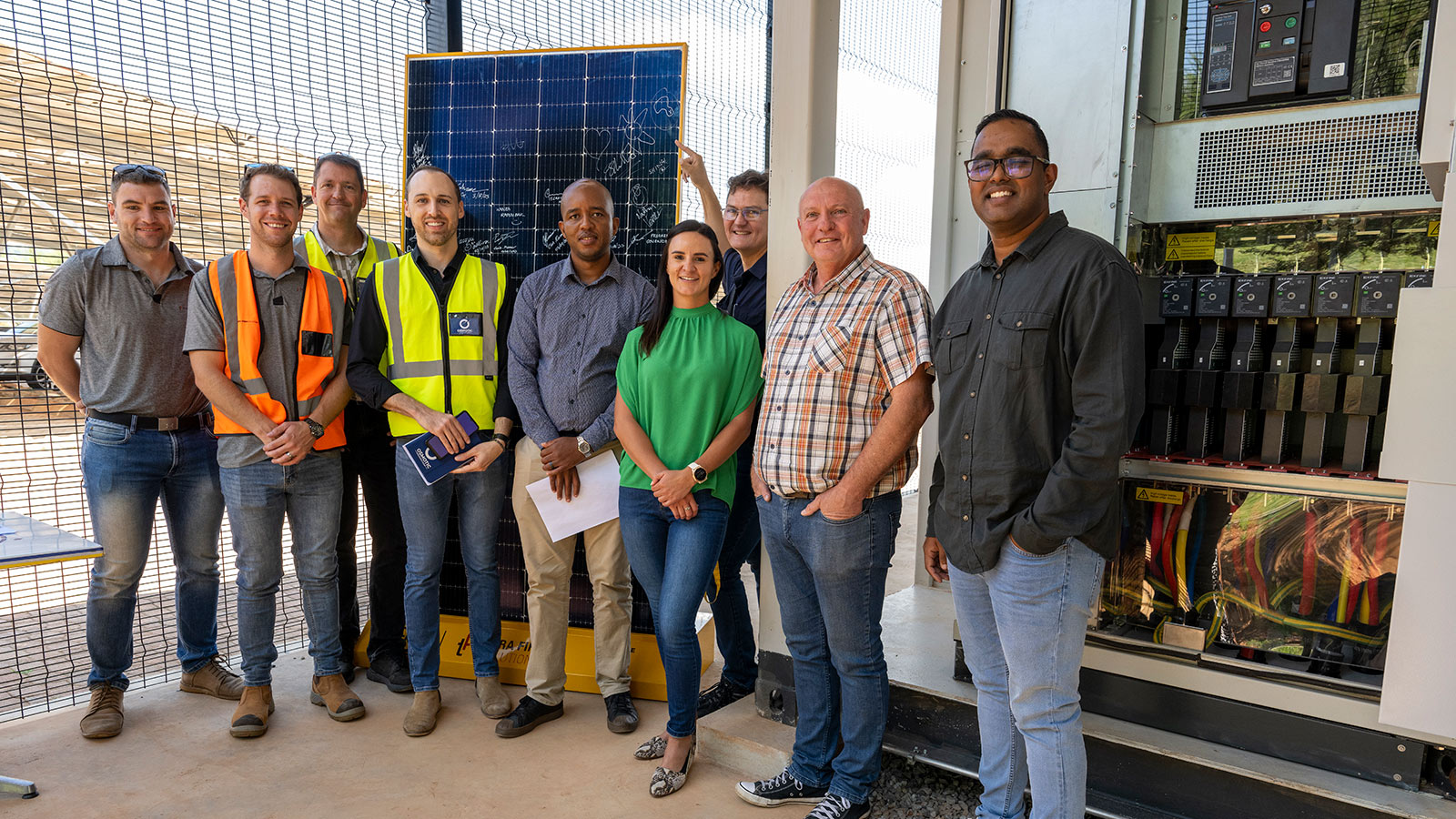
The climate crisis is a global challenge that demands a collective and coordinated response. Rising temperatures, devastating natural disasters, and unpredictable climate patterns are clear signs of a planet in distress. Addressing these challenges requires cross-sector collaboration, where, nations, corporations, and communities put aside their differences and come together to share knowledge, scale innovation, and align on climate ambition.
Project Zero is MTN’s strategic framework for operationalising our commitment to environmental sustainability. It serves as the management mechanism that translates our climate ambition into action – with the goal of achieving Net Zero greenhouse gas (GHG) emissions based on our total carbon footprint by 2040, using 2021 as the baseline.
Since its launch, Project Zero has made substantial progress at a Group level, driving significant achievements in line with our strategic objectives. Notably, we have achieved considerable reductions in Scope 1 and 2 emissions, marking a key milestone in our efforts to minimise our environmental footprint.
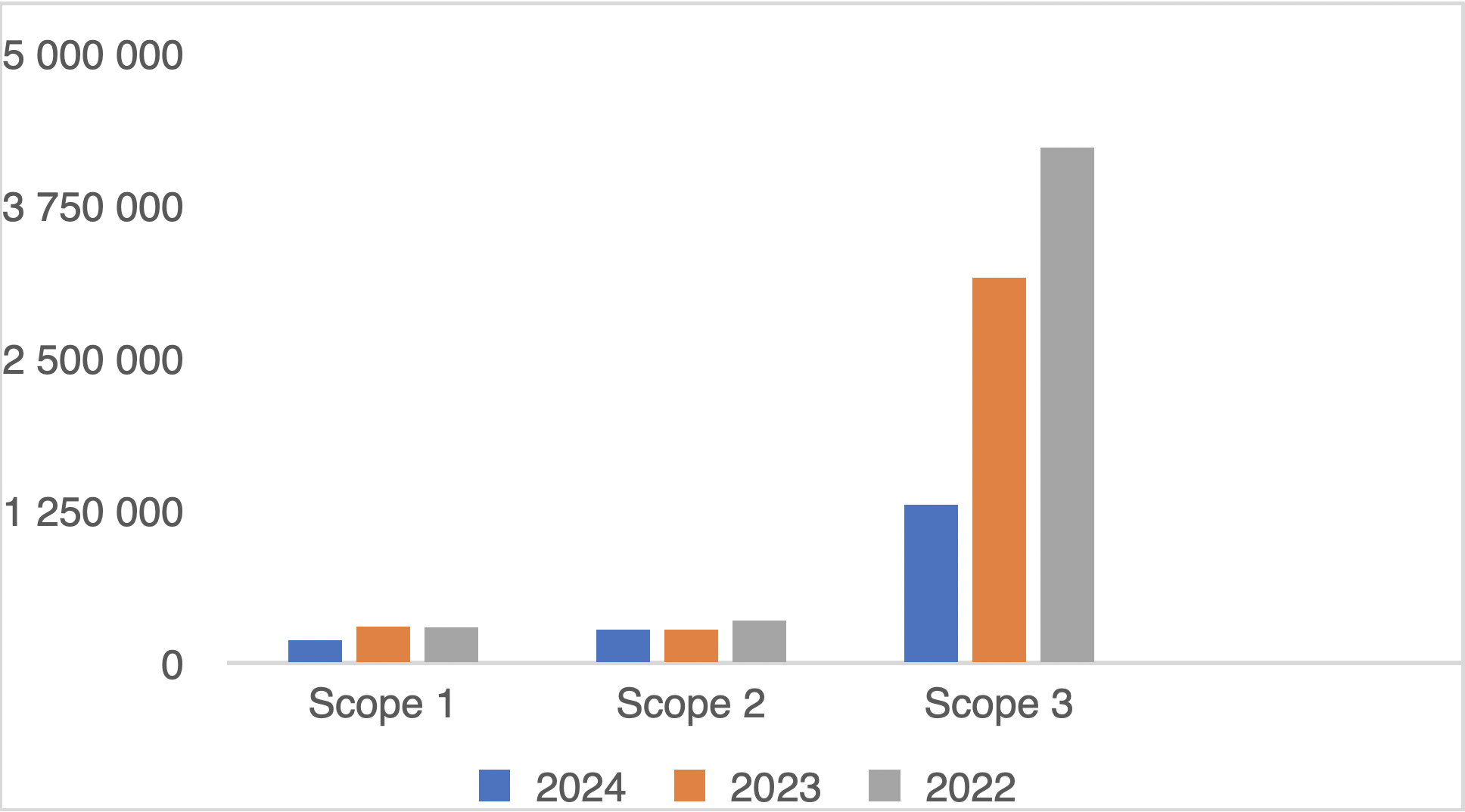
Our market-focused initiatives have yielded significant reductions in emissions and improved operational efficiencies. By adopting tailored strategies that are specifically designed to address the unique needs and challenges of each market, we have been able to drive meaningful impact and optimise performance. These localised approaches have enabled us to effectively navigate diverse operating contexts and achieve our sustainability goals.
Project Zero continues to deliver significant financial and environmental benefits within our business model and regional operations. To build on this success, we plan to scale and replicate effective strategies across different markets, integrating best practices into our overall business model. By staying attuned to emerging trends and innovative technologies, we’ll remain proactive in achieving our strategic objectives and drive continued growth and sustainability.